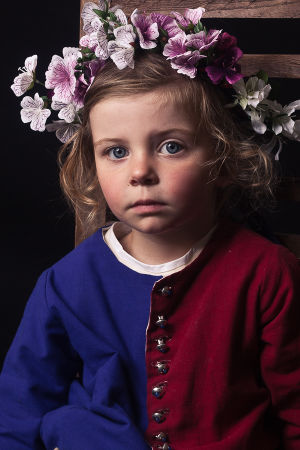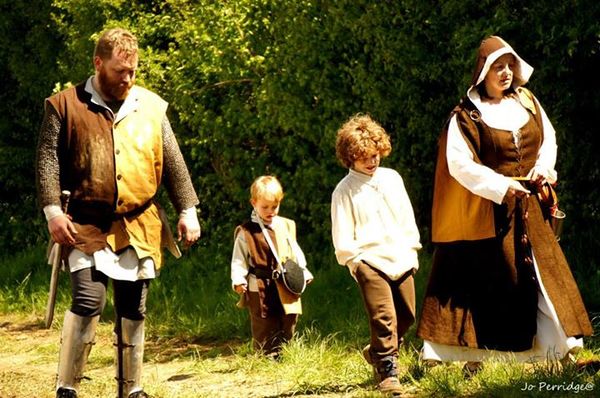The Marches children
Wildwinter (talk | contribs) (Created page with "Marcher children are treated like any other growing thing; they are nurtured so that they may grow straight, strong and true, they are showered with love like the rain and sun...") |
mNo edit summary |
||
| (34 intermediate revisions by 7 users not shown) | |||
| Line 1: | Line 1: | ||
{{CaptionedImage|file=CM-130726-0034.jpg|width=300|align=left}} | |||
Marcher children are treated like any other growing thing; they are nurtured so that they may grow straight, strong and true, they are showered with love like the rain and sun and with discipline like the frost and wind. | Marcher children are treated like any other growing thing; they are nurtured so that they may grow straight, strong and true, they are showered with love like the rain and sun and with discipline like the frost and wind. | ||
It is universally recognised in the Marches that children are not yet “finished”, that is, that they have not grown enough in order to bear fruit (have children of their own, fight in the armies, or contribute to the nation in quite the same way as an adult). Until adulthood is reached, a child’s soul has not “fixed” or “settled” in their body | It is universally recognised in the Marches that children are not yet “finished”, that is, that they have not grown enough in order to bear fruit (have children of their own, fight in the armies, or contribute to the nation in quite the same way as an adult). Until adulthood is reached, a child’s soul has not “fixed” or “settled” in their body; this is why children can be prone to selfishness, whim or fancy and can be unpredictable or fickle. | ||
However, that doesn't mean they can't be useful to have around. The notion is that they'll learn best by watching and helping where they can. This practise is formalised by custom as "giving a hand". It's a precursor to apprenticeship but more based on the child’s interest and not a permanent thing. If a child is watching what you’re doing, ask them to ‘give you a hand’ and give them something to ‘do’, something which doesn’t get in your way. That involves them in what you're doing whilst they watch and learn. An interested child might ask if they can ‘give you a hand’, meaning they want to learn more by helping out. | |||
The | Most Marcher children are given a poppet each year. Looking after the poppet is part of the child’s growing and maturing process – “learn to look after yourself and you’ll better look out for others” many a mother has been heard to say to her child. The poppet contains a hearth magic that helps to protect the child against disease and illness. When the child’s poppet is ploughed back into the field their connection to the land is strengthened. | ||
{{CaptionedImage|file=MarcherFamily.jpg|title=Thomas and Eleanor Shanks with the two Shanks boys|caption=Like other growing things children need to be nurtured so they grow straight, strong and true.|width=600|align=right}} | |||
When a child passes the tests of adulthood, there is a celebration. Not unlike a birthday, gifts are given and some parents present their children with a weapon so that the child may fight for the Marches when needed and with a tool so that they may work the land in the mean time. These items are often heirlooms and have been passed along generations of families. There are a few regional variations upon this, but the principles are the same. Some well-wishers give a gift of symbolic jewellery representing the items instead. | |||
===Things every child should know=== | |||
*'''Give people a hand.''' Hard work is the secret to respect in the Marches. If you see people you know who are working hard, offer to give them a hand. If they include you in what they are doing, they'll treat you with more respect and you may learn something useful. | |||
*'''Hue and cry.''' In the Marches, people work together to stop criminals. Keep your eyes open for anyone up to no good and give a shout if you see it. | |||
*'''Shunning.''' You must never shun another child, but if you are told that someone is shunned then you should make an effort to ignore them and not talk to them. | |||
*'''Sport.''' When you're not working, get a ball and some friends and have a game. Don't worry about the rules, worry about winning! | |||
*'''Traditions.''' If you see someone breaking the Marchers' traditions always speak up and let others know that something is wrong. | |||
[[Category:Children]] | |||
{{The Marches Links}} | |||
[[Category: | |||
Latest revision as of 14:05, 12 August 2020
Marcher children are treated like any other growing thing; they are nurtured so that they may grow straight, strong and true, they are showered with love like the rain and sun and with discipline like the frost and wind.
It is universally recognised in the Marches that children are not yet “finished”, that is, that they have not grown enough in order to bear fruit (have children of their own, fight in the armies, or contribute to the nation in quite the same way as an adult). Until adulthood is reached, a child’s soul has not “fixed” or “settled” in their body; this is why children can be prone to selfishness, whim or fancy and can be unpredictable or fickle.
However, that doesn't mean they can't be useful to have around. The notion is that they'll learn best by watching and helping where they can. This practise is formalised by custom as "giving a hand". It's a precursor to apprenticeship but more based on the child’s interest and not a permanent thing. If a child is watching what you’re doing, ask them to ‘give you a hand’ and give them something to ‘do’, something which doesn’t get in your way. That involves them in what you're doing whilst they watch and learn. An interested child might ask if they can ‘give you a hand’, meaning they want to learn more by helping out.
Most Marcher children are given a poppet each year. Looking after the poppet is part of the child’s growing and maturing process – “learn to look after yourself and you’ll better look out for others” many a mother has been heard to say to her child. The poppet contains a hearth magic that helps to protect the child against disease and illness. When the child’s poppet is ploughed back into the field their connection to the land is strengthened.
When a child passes the tests of adulthood, there is a celebration. Not unlike a birthday, gifts are given and some parents present their children with a weapon so that the child may fight for the Marches when needed and with a tool so that they may work the land in the mean time. These items are often heirlooms and have been passed along generations of families. There are a few regional variations upon this, but the principles are the same. Some well-wishers give a gift of symbolic jewellery representing the items instead.
Things every child should know
- Give people a hand. Hard work is the secret to respect in the Marches. If you see people you know who are working hard, offer to give them a hand. If they include you in what they are doing, they'll treat you with more respect and you may learn something useful.
- Hue and cry. In the Marches, people work together to stop criminals. Keep your eyes open for anyone up to no good and give a shout if you see it.
- Shunning. You must never shun another child, but if you are told that someone is shunned then you should make an effort to ignore them and not talk to them.
- Sport. When you're not working, get a ball and some friends and have a game. Don't worry about the rules, worry about winning!
- Traditions. If you see someone breaking the Marchers' traditions always speak up and let others know that something is wrong.
Further Reading
Core Brief
Additional Information

